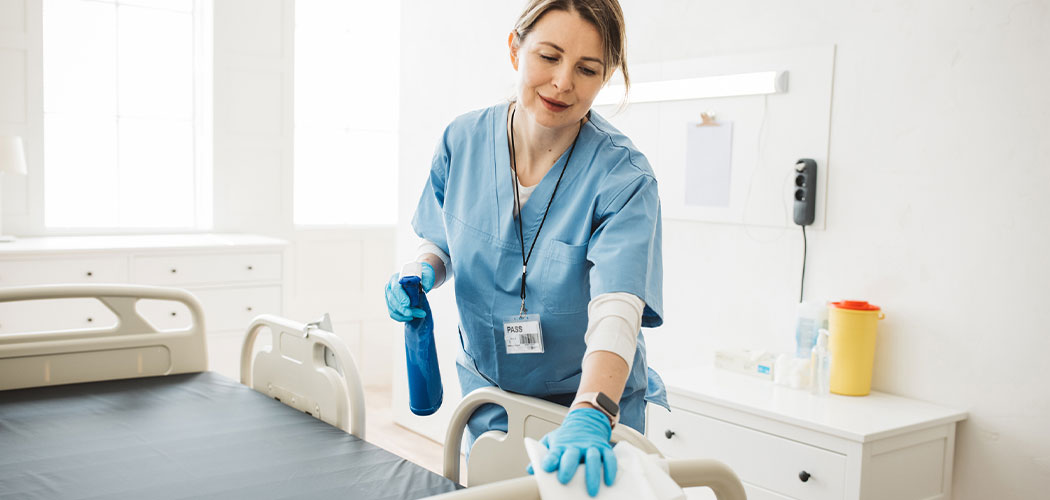Cleaning shared medical equipment at least once a day, even with a disinfectant wipe, can save lives by reducing infections in hospitals, new world-first research shows.
The finding is based on results from the CLEEN study, an Australian randomised control trial which found the intervention resulted in a 35% reduction in healthcare-associated infections.
The research, led by Avondale University, introduced an intervention that consisted of additional cleaning, education on techniques and an audit of, and feedback on, cleanliness.
Dedicated cleaners completed three extra hours of cleaning each day on shared equipment such as commodes, drip stands and walking aids. Healthcare staff were usually responsible for cleaning these items.
Researchers identified relatively low levels of cleaning thoroughness during the control phase, suggesting “routine cleaning is either not performed or is ineffectively performed.”
To measure cleanliness, researchers placed fluorescent marker gel dots on the surface of the equipment. When the dots dried, they became visible only under special light and resisted dry abrasion, which meant they could be removed only by a thorough clean.
Before the intervention, the hospital removed about 25% of the dots. After the intervention: 65% of the dots. The result was a 35% reduction in all healthcare-associated infections.
With infections not only costing money but taking lives, the burden is significant.
“We had about 100 more infections before the intervention. A proportion of these would have had major complications resulting from their infection, including death,” said lead researcher Professor Brett Mitchell from Avondale University. “
Despite the associated increase in morbidity, mortality and antimicrobial resistance not to mention length of stay, strategies to prevent healthcare-acquired infections are informed by low-quality evidence. The research was funded with a $1.5 million National Health and Medical Research Council grant.
Avondale University researchers worked with colleagues from Monash University, Queensland University of Technology and clinicians from the Central Coast Local Health District and Alfred, Cabrini and Monash Health.
The findings support more, not less, cleaning in hospitals, Professor Mitchell said. “Cleaning is a cost-saving activity, but if cuts are made it means, potentially, more harm to patients as they are more likely to acquire an infection.”
The study demonstrated the critical role of dedicated cleaners, said fellow chief investigator, Professor Philip Russo, Director of Research at Monash Nursing and Midwifery.
“Infection prevention relies on multiple interventions, not just one. We now have strong evidence that cleaning can save lives.”
The paper was published online first in The Lancet Infectious Diseases.
A commentary on the paper is also available: Success of the CLEEN study








